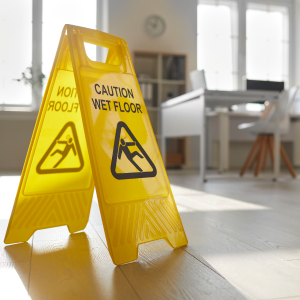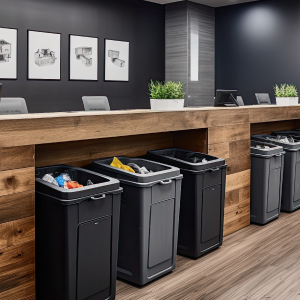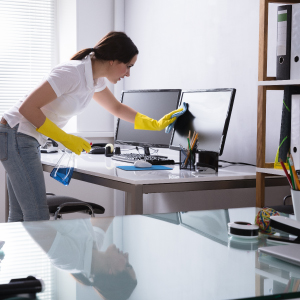Tiles have long been a popular flooring choice as they are diverse in style, water resistant and durable. However, there are various types of tile floors, and they shouldn’t all be cleaned in the same way. Getting the different approaches to cleaning tiles right will help maintain their condition for years to come.
- Tiles are popular flooring choices as they come in many colours, styles, and materials.
- Tiles manufactured from different materials require different approaches to cleaning.
- Cleaning tiles correctly will maintain their appearance and longevity.
Firstly, whatever the flooring type, the equipment needed to clean them will be similar: a vacuum or soft brush, a couple of microfibre cloths, a mild detergent and a bucket.
- For porcelain or ceramic floors, sweep or vacuum to remove loose grime using a soft brush or attachment. Dilute the detergent to make a weak solution then use a microfibre cloth or mop to extract minimise excess water and clean the floor in sections. Depending on the detergent used, you may need to rinse, so follow the instructions and then leave unsealed tiles either to air dry or use a dry microfibre cloth. If the tiles are sealed, you could also use a steam cleaner which can make cleaning textured tiles easier.
- A similar approach can be used to clean linoleum tile floors apart from using a steam cleaner. This is because linoleum is a synthetic material that’s not meant for high moisture as water can damage them.
- Vinyl floor tiles made from PVC are waterproof and easy to clean as well as being durable. Following the same process as for porcelain or ceramic tiles by mopping or wiping with diluted floor cleaning detergent should get them clean, and any scratches or scuffs can be buffed out using bicarbonate of soda or surgical spirit.
- Natural stone floors are porous and are easily marked or scratched. The same cleaning process as the other floor surfaces can be followed, but make sure that you use an appropriate type of cleaner – not abrasive – and not a steam cleaner.
- For a marble flooring, clean up spillages promptly and avoid acidic cleaners. Use a weak solution of dishwashing detergent in warm water and make sure that you seal marble floor tiles regularly. For stains, use a specialist marble cleaner.
- Travertine, granite and limestone tiles need a cleaner with a neutral pH and because they all stain and scratch quite easily, sealing is recommended. Again, use a stone-specific stain remover for stubborn marks.
- Terracotta tiles are porous so don’t let water pool or linger on them and avoid acidic cleaners. You could consider sealing terracotta tiles to protect them and for easier cleaning.
Whatever your type of floor tile, cleaning them little and often should help maintain them and stop it from becoming a big job. Make sure that you rinse thoroughly where necessary to avoid a sticky finish and wipe spills with a damp cloth as soon as possible.







